It Takes A Town To Raise A Griever: Notes On After Life & The Dependence Of Loss
This is #ViewingRoom, a column by OTTplay's critic Rahul Desai, on the intersections of pop culture and life.
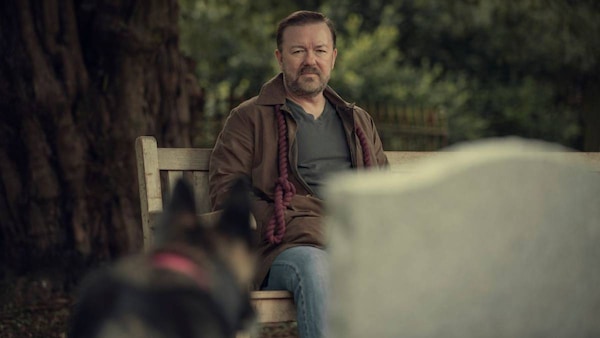
Last Updated: 08.01 PM, Jun 18, 2023
YOU know how falling in love makes you feel sorry for the people around you? Like you have something they don’t. Like you are the chosen one. It’s giddy at the top. You wonder how the stranger next to you on the bus is going through life without feeling the way you do. You feel like the protagonist, the center of a universe that will cease to exist if you die. How dare they work and eat and travel and talk like nothing has happened? How dare they carry on like it’s just another emotion?
But falling in grief makes you feel sorry for yourself. Like you have something that nobody else does. Like you are the chosen one. It’s lonely at the bottom. You wonder how the stranger next to you on the bus is going through life without feeling the way you do. You feel like a former protagonist, the center of a universe that will continue to exist if you die. How dare they work and eat and travel and talk like nothing has happened? How dare they treat me like I’m just another partner or son or writer or friend or relative?
I’ve been feeling like that a lot lately. It’s been months since I lost my closest friend. I’ll never be okay with the sadness of him not being around. But I’ve made peace with that. I’ve made peace with the fact that I dig up an old email or watch his video before bed every night so that my mind is tricked into dreaming of him. I’ve made peace with how I work out harder so that I can stop aging and look as young as he will stay in my memories. I’ve made peace with the texts I send him without expecting a response. I’ve made peace with the crippling anxiety I feel when I plan my next trip without him. I’ve made peace with how much I miss him every time I sip on a beer. I’ve made peace with that unextractable lump in my throat. I’ve made peace with the pieces of me he took with him. I’ve made peace with the independence of my despair, the privacy of my pain. It’s between us, a secret language, a confidential bond, and it’s mine to mourn.
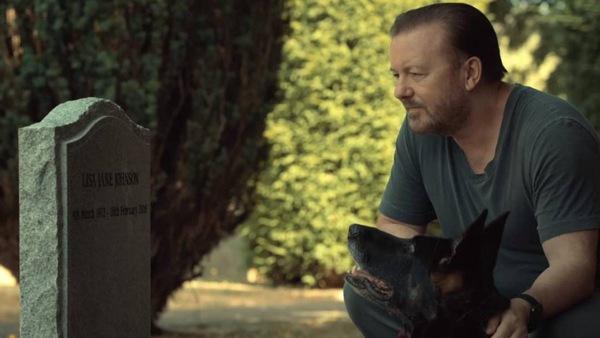
But I’ve not made peace with the world around me. Grieving is as social as it is personal — it’s about the spectacle of surviving as much as the seclusion of losing. You miss someone because of the distinct equation you shared with them, an intimacy you fostered that was only yours. But you also miss someone because there’s nobody else like that person. Love and pain do not grow in isolation; they’re relative to other kinds of love and pain. His absence is often amplified by the presence of others. Yearning for his company is directly linked to the company I am left with. The irony is that every moment after they’re gone will subconsciously be compared to the moments with them, whether it’s newer people unable to show the right empathy or older people unable to fill that void. Grief is love with nowhere to go, but it’s also heartbreak with nowhere to hide. A lot of our misery is rooted in the pressure to “stay strong” — that old, pointless phrase — and keep moving. It’s shaped by the short-hand entitlement of a culture that normalizes — and generalizes — the capacity to cope. I don’t expect sympathy, but I do hope for compassion and courage to engage with my fractured words.
In the movies, most stricken characters live alone in the mountains and the wilderness, far away from civilisation, with perhaps a dog for company. At first, I used to think it’s simply a visual trope meant to make grief look moody and cinematic. Now I get the reasoning — it’s to preserve the sanctity of their grief. It’s to ensure that the tears are not relative, that the suffering stays pure and untethered to the world around them. They move away so that they don’t have to deal with the added baggage of getting disappointed with people and their awkward emotional etiquette. They escape to eliminate the social aspect of grieving — the struggle to function in a society that isn’t equipped to look beyond its own business — and keep it strictly personal. That way it’s just them and their memories, with no earthly worries to derail their bereavement.
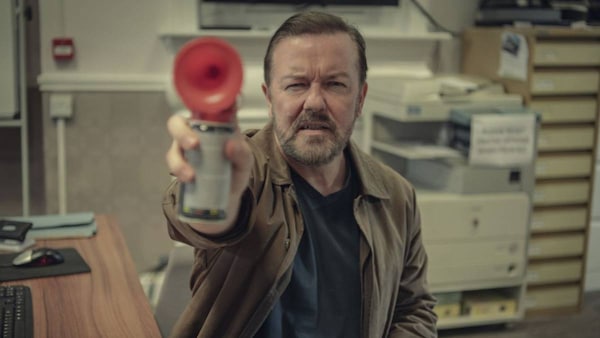
But it’s true that in the real world, time isn’t so forgiving. Most of us don’t have the luxury to disappear. I don’t have the option of totally collapsing or retiring to a Himalayan cabin to hunt for my own food. The world is very much a part of my process, whether I like it or not. The disillusionment with the continuity of life is very much an element of my pain. There are responsibilities I can’t run away from; my grief can’t afford to be individualistic. I have ageing parents, bills to pay, writing to do, a lease to renew, a partner to value, movies to watch, a future that won’t wait. The most I can do is travel a little, and return with fresher perspectives and patched-up spirits. It’s the endless loop of having to confront the grammar of living — maintaining relationships, not falling off the radar — that keeps me up at night. I wake up every morning with a deeply entrenched sense of dread, like I’m perpetually in a place I’m not supposed to be, like I’m owed a break and a hug from an environment that’s too busy to hear my silent cry for help. My struggle will always be to function — and renegotiate the terms of my social footprint — without escaping. If there’s any escaping involved, it can’t be too far.
There are times when I think of how Ricky Gervais made an entire show about this complicated plurality of grief. In Netflix’s After Life, he plays Tony, a widowed journalist who behaves like he has nothing left to lose. He spends nights watching videos of his late wife and drinking himself to sleep. His grief is defined by his acerbic attitude towards the life he still has; he tolerates it, mocks it and goes through his routine with an air of detachment. His days are marked by nihilism, sarcasm and disdain for his surroundings. Tony drags himself to office, has no mental filter, gets off on trolling his editor (also his brother-in-law), and looks exhausted with the oddballs he interviews. Once in a while he relates to them — recognising their dissonance in an age of stubborn linearity — and collapses into a shadow of kindness. But he’s mostly a terror to be around, turning his inability to move on into a repetitive performance. It’s like he wants the town to know that he has lost his soulmate; he makes it hard for those around him so that they remember this and grant him some concessions. He’s exercising his grief licence — his freedom to get away with murder — because he has earned his right to be resentful of a place, a place where mundanity makes the future resemble a cruel reflection of the past. He’s mean to others so that perhaps they don’t have the patience to disappoint him. How can you break a broken man anyway?
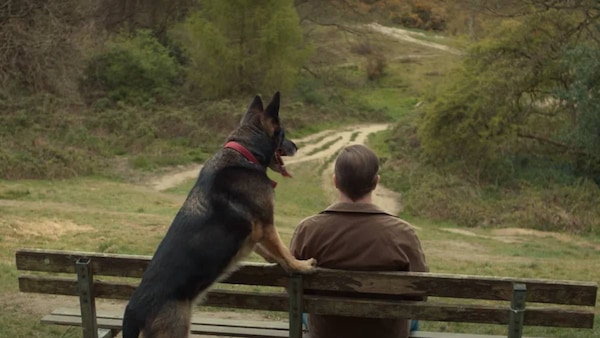
I ache to be a Tony these days. I’d like to be a man who is open in his contempt for a life that’s too reliant on perceptions and perspectives. I don’t want to care about the consequences of being rude with someone; I don’t want to worry about what others might think of my meltdowns. I want to be bitter so that people don’t forget to treat me differently. I want to be hopeless and secure enough to cede control. But Tony has one thing that maybe I don’t. The fictional English town rallies around him in their own little ways. It’s never apparent, but over time, they give him the space to be a loose canon. It takes the character more than two seasons to realise that his provocative persona has been met with constant faith and familiarity. Nobody judges him. Nobody demands decency or respect from him. There’s never any pressure on him to be productive or sensitive. His office won’t dump him if he doesn’t show up. His postman will keep knocking on his door until he answers.
If anything, they grant him the privilege to be consumed by his grief. To be stuck in a cycle of aborted beginnings and self-pity. In doing so, he gets wounded enough to notice other wounds without trivialising them. By the final season, Tony finds himself thanking them for their invisible kindness. It’s designed like a farewell tour, but he’s really just celebrating the fact that the social dimensions of his grief never impeded his private ordeal; one merely became the extension of the other. He finally makes peace with their patience to indulge his pieces. His evolving relationship with the people that saw him fall in love, get married, fall in grief and get depressed forms the basis of After Life. He never escaped it; he lashed out at it till they were convinced that he’s the saddest man on the planet.
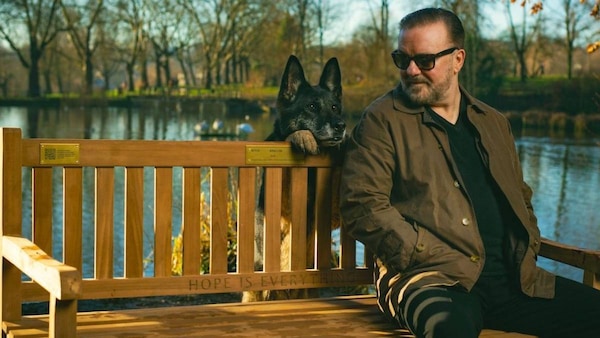
I want his town. I want a town that holds me when I fall, bottles my curses and makes me feel like the protagonist again. I want a town that isn’t too busy to assume I’m just another griever. I want a town that understands my constant time-travelling to the past — a bit like the protagonist’s power in About Time — so that I can spend a few extra days with him. I want a town that understands that moving on with my life — whether it’s working, getting married, having kids, or just breathing more — does not imply I’ll let go of him. I want a town that doesn’t make me feel silly for wallowing in the pain of losing the only person who got me. I want a town that forces me to speak about it. I want a town that takes my punches and guides me towards kindness. I want a town that wants me back. I don’t want to be that stranger on a bus to the mountains that lovers feel sorry for. It’s me, him, my rage and the utopian town that protects our melancholy. I’m not going anywhere, but that doesn’t mean I’m going nowhere. My love is now grief with nowhere to go. It’s there for everyone to see. This is my afterlife — and home will always be where my heartache is.

 Premium
Premium